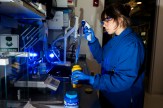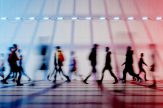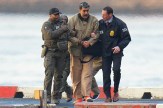Volunteer drive on London campus ensures that Northeastern students can cast their vote in US presidential election
VoteFromAbroad.org advised U.S. citizens studying in London how they can have their say in the election.
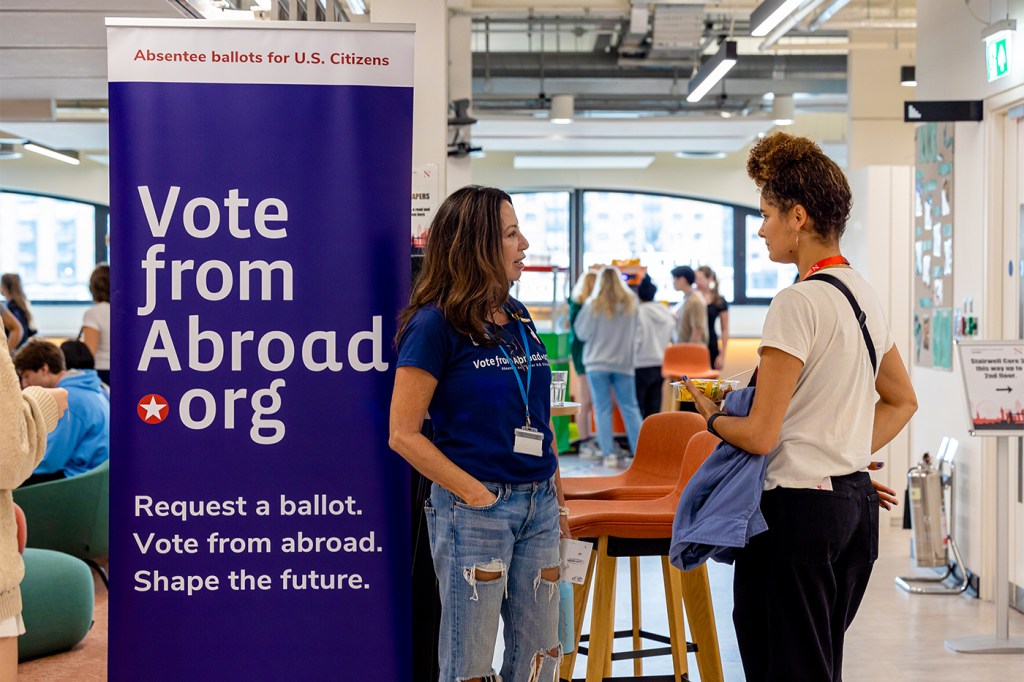
LONDON — Not even studying in another continent needs to prevent U.S. residents from having a say in the presidential election.
More than 1,000 Americans have come to London as part of their Northeastern University degree program but that does not mean they will lose their vote.
Volunteers from VoteFromAbroad.org, an organization that assists U.S. citizens with applying for absentee ballots, talked students through how they can go about voting in the race for the White House headlined by the contest between Kamala Harris and Donald Trump.
Lesley Gallagher, who on Friday was helping run the organization’s helpdesk in Devon House — the main campus building in London — said the team had been inundated with inquiries from students.
“It has been pretty constant,” she said. “In fact, some of them have already applied for their ballot, and that is great.”
Gallagher said 6 million U.S. citizens live abroad but only one in six of those cast a ballot. “That voting percentage is pretty low, so we’re just trying to move that needle,” she added.
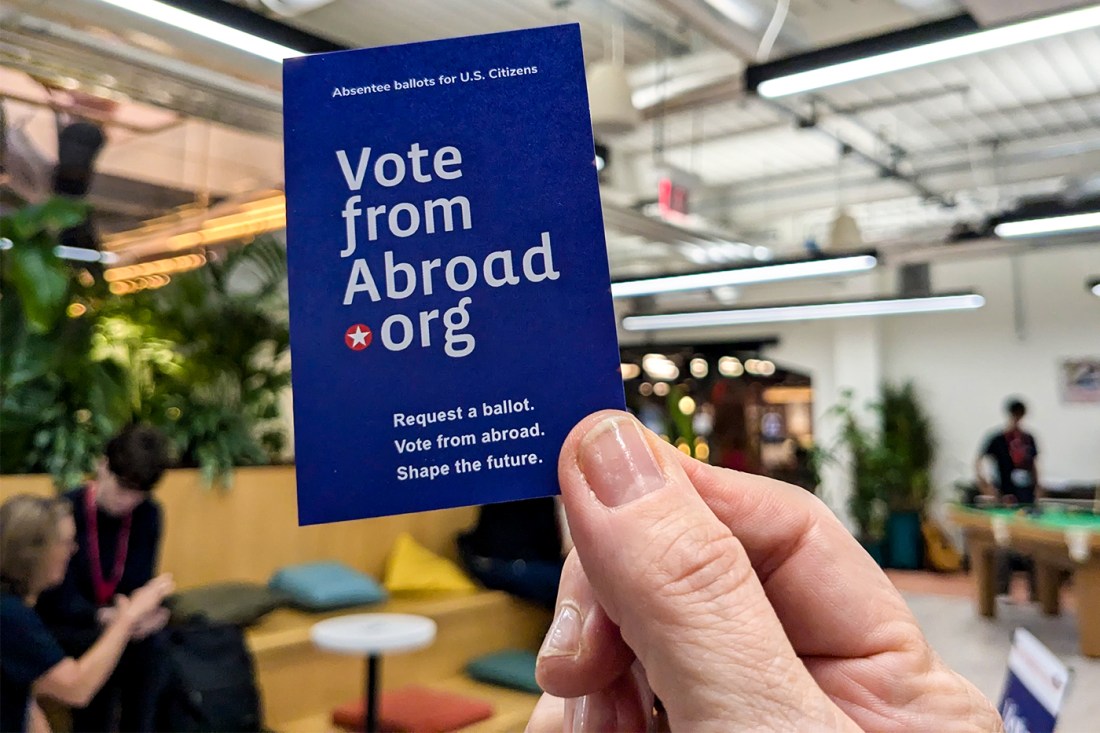
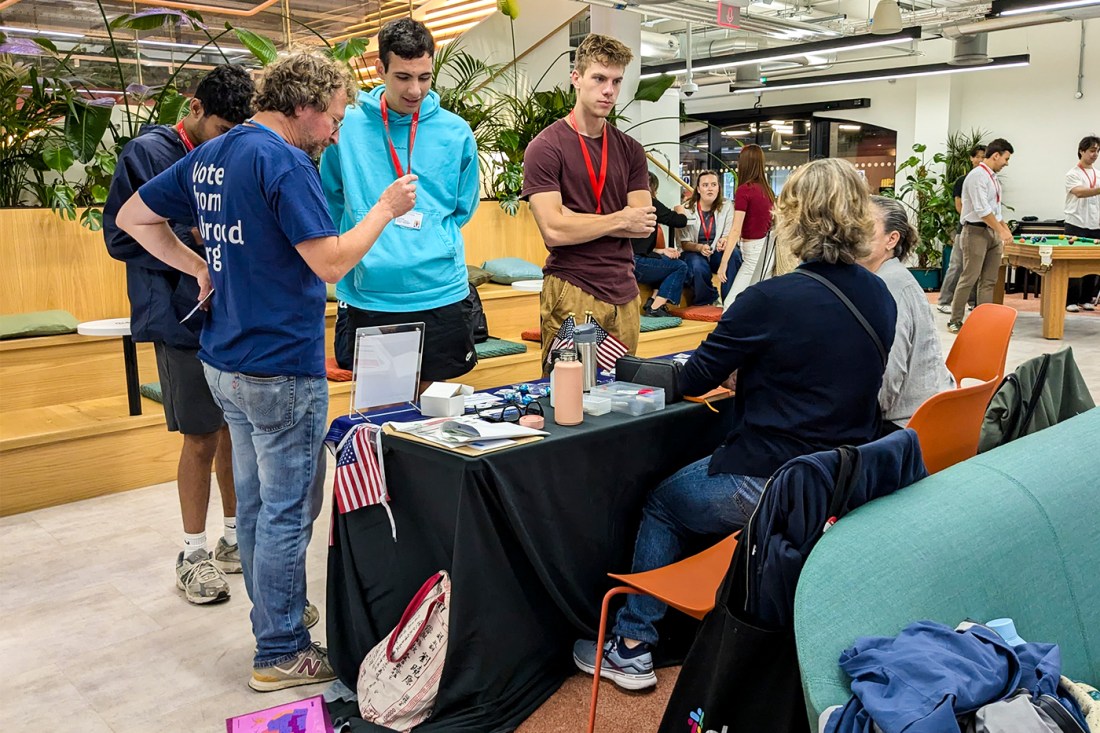
Anyone with a U.S. passport or U.S. citizenship and who is living abroad can register to vote.
Gallagher knows the process well — the Texan has lived in the U.K. for 24 years and re-registers for the electoral roll annually so she can continue to take part in American politics.
As part of the Welcome Week offering in London, VoteFromAbroad.org volunteers were giving advice to students on what the voter registration requirements are in each of the 50 states, helping them access a federal form needed to request a ballot.
U.S. citizens living abroad need to submit the Voter Registration and Absentee Ballot Request Federal Post Card Application — also called the FPCA.
Featured Posts
VoteFromAbroad.org members were even on hand to sell international stamps so students can post their forms back to their home states as soon as they have completed the paperwork.
But that bureaucratic assistance is the extent of it when it comes to advice from the nonpartisan organization.
“We don’t talk about issues or candidates or tell you who to vote for,” Gallagher explained. “We just help them to have the ability to vote because we like democracy.”
Even students studying in London for only the fall semester will find their time in Europe coincides with the Nov. 5 election, meaning time is of the essence to ensure they do not miss out on having their voice heard.
Kiara Peckham of Boston was one of those keen to hear about how to take part in the presidential contest.
“I definitely found it useful,” said the behavioral neuroscience and philosophy undergraduate. “I didn’t know anything before I spoke to them.
“I was worried about not being able to vote. I’m 18, so it will be my first time voting and I want to ensure my opinion is heard at this election. Being given the chance to do this is very special.”
Benjamin Novak, 19, not only found out how to vote but also bought stamps so he is ready to post his form back to his home state of New York.
“I had no idea how to vote at all, never mind how to do so as someone living outside the country,” the business undergraduate said.
“I wasn’t even registered to vote before today — now I have everything I need. This has been incredibly helpful.”
Gallagher said that while students will be excited about spending time abroad studying, they also have the chance to have an influence over the future of their homeland.
“I think it is so important that they engage with what is going on in the election because they are going back to the U.S.,” she said.
“Some of them are only here for a semester, so they’ve got to live with the result of what happens in November. I think they’ve got a huge interest in what happens.”








